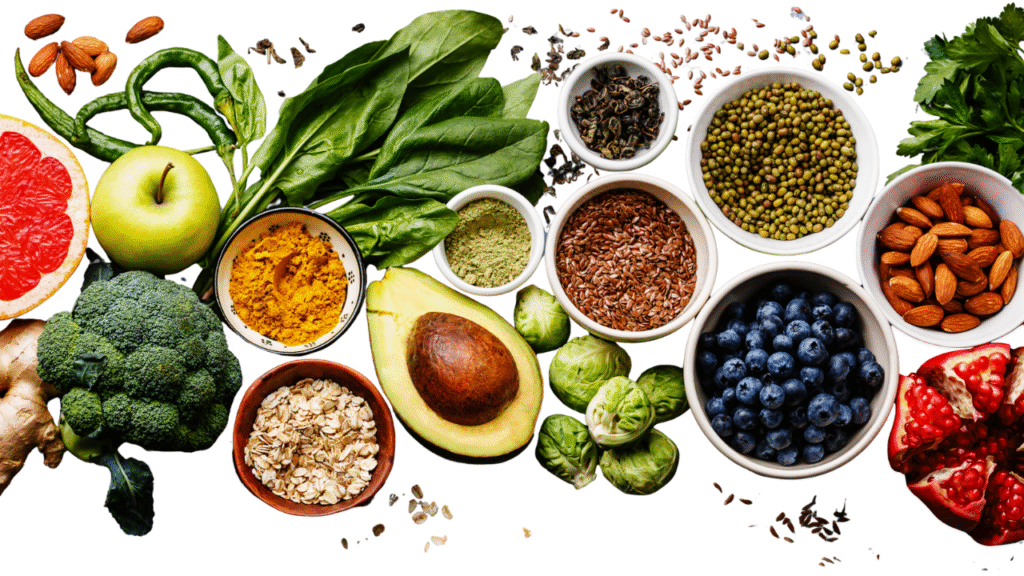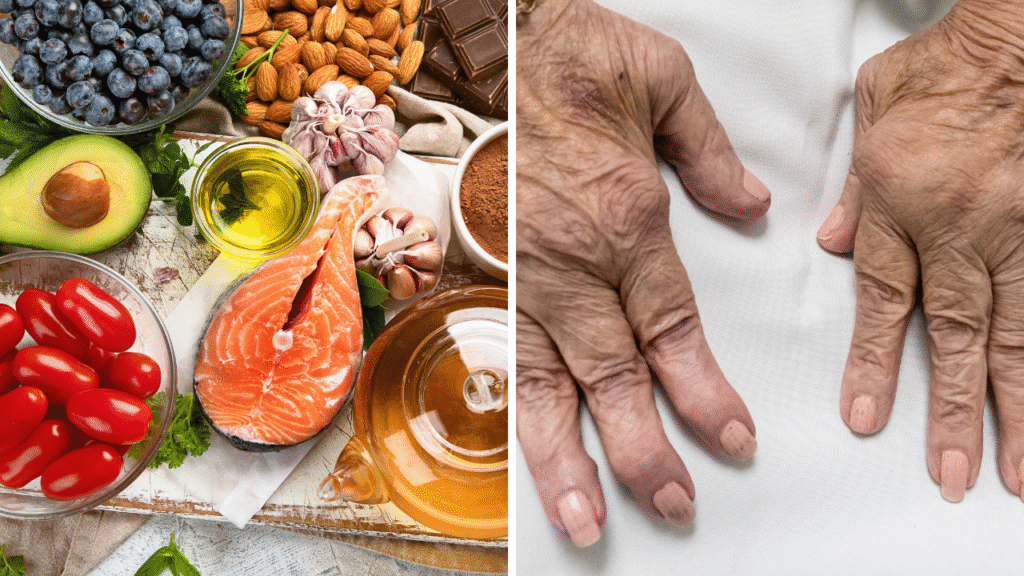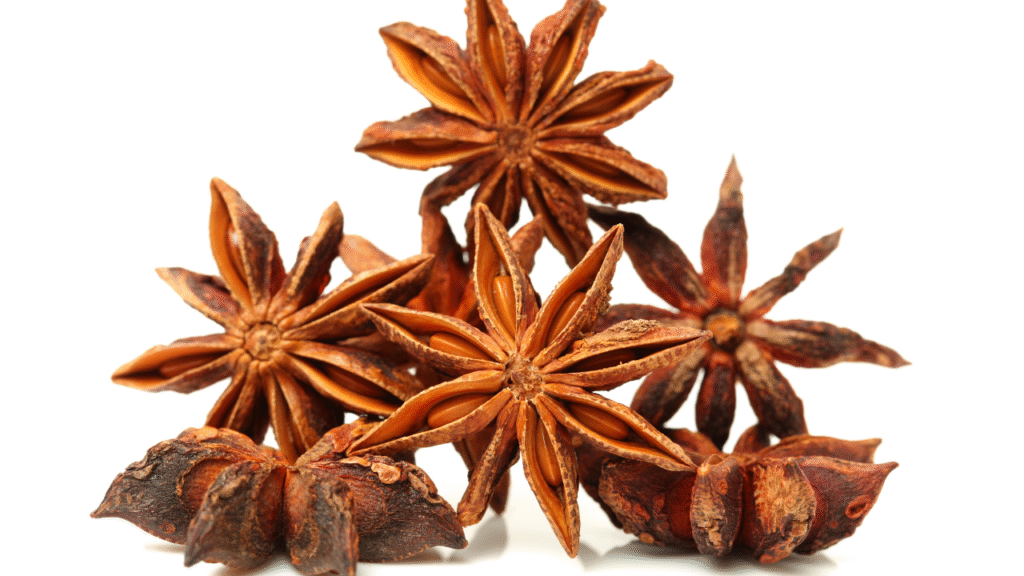
The pineapple is the most economically significant plant in the Bromeliaceae family. It is a tropical shrub with many fruit-like berries. It can be grown from a crown cutting and eaten fresh, canned, or juiced. You can find Pineapples in various foods, including desserts, fruit salads, jams, yogurt, ice cream, confectionery, and meat dishes.
Pineapple leaves are utilized in Tripura as a textile material called pia and in wallpaper and furnishings. The pineapple is a herbaceous perennial that grows to a height of 1.0 to 1.5 meters. It has stiff, waxy leaves and a short stem.
The tropical pineapple contains nutrients and antioxidants, such as vitamin C, manganese, and enzymes. It promotes digestion, strengthens the immune system, lowers cancer risk, and shortens recovery time after surgery.
Nutritious Fact
1. Bromelain
Bromelain is a proteolytic digestive enzyme that aids digestion and breaks proteins into amino acids. On an empty stomach, it has anti-inflammatory qualities and may help with illnesses such as sinusitis, burns, pancreatic insufficiency, and skin rashes. Bromelain can be present in both the pineapple fruit and the stem.
2. Vitamin C
Vitamin C, a powerful antioxidant, aids in synthesizing collagen, iron absorption, and preventing urinary tract infections during pregnancy. It also lowers the risk of developing some malignancies. 1/2 cup of raw pineapple contains 28mg of vitamin C and only 37 calories, according to the 2005 Dietary Guidelines for Americans.
3. Vitamin B1
Pineapples contain vitamin B1, or thiamine, required for energy conversion, heart, muscle, and nervous system function, and red blood cell formation.
4. Manganese and Copper
Pineapples contain essential minerals such as manganese, necessary for bone formation and enzyme activation, and copper, which aids in iron absorption, blood pressure regulation, and heart rate and blood pressure.
5. Fiber
Like many fruits, pineapples are high in fiber, which can help lower blood cholesterol, reduce the risk of heart disease, and treat illnesses such as diabetes and constipation. According to research from the American Cancer Society and the Harvard School of Public Health, increasing fiber intake can also help to lower metabolic syndrome, which includes high blood pressure, high insulin levels, extra belly weight, and high triglyceride levels.
Here are 20 health benefits and Uses of pineapple.
1. Highly nutritious
Pineapples are a low-calorie fruit with nutrients such as vitamin C, manganese, and minerals. Each cup of pineapple has 82.5 kcal, 0.198 g fat, 0.891 g protein, 21.6 g carbs, and 2.3 g fiber. Manganese is 109% of the DV for women and 66% for men, whereas vitamin C is 88%. Pineapples are also high in phosphorus, zinc, calcium, and vitamins A and K. Vitamin C is required for immunological health, iron absorption, growth, and development. In contrast, manganese is necessary for growth and metabolism. Antioxidants aid in the prevention of oxidation, which can lead to inflammation, cancer, and other chronic diseases.
2. Pineapple provides antioxidants and boosts immunity.
Pineapple is high in vitamin C, an antioxidant that can help lessen the symptoms of many ailments. One cup of pineapple delivers more than 100% of your daily vitamin C needs. While it cannot wholly prevent sickness, it can lower the severity of chronic inflammation-related disorders such as arthritis, atherosclerosis, and asthma. Vitamin C also aids in maintaining a healthy immune system, potentially shortening the duration of common ailments such as the flu or ear infections. To help you fight the flu, make a delightful Pineapple Smoothie with pineapple, juice, and vanilla yogurt, which boosts your immune system and supports overall wellness.
3. Pineapple builds stronger bones.
Copper is essential for bone growth and strengthening since it aids collagen production and enhances each bone’s mechanical strength. It also prevents bone resorption, the process by which the blood absorbs minerals and breaks down bone cells. One cup of pineapple contains 9% of your daily copper requirements. Manganese, a trace mineral, is also necessary for bone growth and health, particularly in the spinal bones. Postmenopausal women, who are frequently manganese deficient, are at an increased risk of bone fracture. To boost bone health, consider including copper- and manganese-rich foods, such as Pineapple and avocado Salad.
4. Contains antioxidants
Pineapples are high in antioxidants, such as flavonoids and phenolic compounds, which assist the body fight oxidative stress. These unstable antioxidants have been related to chronic inflammation, compromised immunological systems, heart disease, diabetes, and some malignancies. A rodent study revealed that the antioxidants in pineapple may have heart-protective properties, but human evidence is limited. Many of the antioxidants in pineapple are bonded, so their effects remain longer.
5. May aid digestion
Bromelain, a set of digestive enzymes that aid in the digestion of meat, is found in pineapple, a fruit typically eaten alongside meats and poultry in Brazil. Bromelain breaks down protein molecules, making them easier to absorb in the small intestine. This is especially advantageous for people who have pancreatic insufficiency. Because of their propensity to break down tough meat proteins, pineapples are also employed as a commercial meat tenderizer. Bromelain was discovered to lower inflammatory markers in digestive tissue in a test-tube investigation.
6. May reduce your risk of cancer
Cancer is a chronic disease that is associated with oxidative stress and inflammation. Pineapple and its constituents, particularly bromelain, may lower cancer risk by decreasing oxidative stress and inflammation. A test-tube study that inhibited breast cancer cell growth while stimulating cell death suggests that bromelain may also help treat advanced cancer. However, More human research is required to properly comprehend pineapple’s possible anticancer effects.
7. Improving immunity and reducing inflammation
Pineapples have been used in traditional medicine for ages because they contain vitamins, minerals, and enzymes. According to a 2014 study, youngsters who ate pineapple had a lower risk of viral and bacterial illnesses and four times more disease-fighting white blood cells. However, additional research is required to corroborate these conclusions. Pineapples have anti-inflammatory qualities that may help the immune system work better.
8. May ease symptoms of arthritis
Arthritis affects about 54 million persons in the United States and is characterized mainly by joint inflammation. The anti-inflammatory characteristics of bromelain may give pain relief for patients who have inflammatory arthritis. Studies have shown Bromelain supplements to be just as effective as conventional pain medication in alleviating osteoarthritis in the lower back. A digestive enzyme supplement containing bromelain relieves pain like traditional arthritis medications. More research is required on this subject.
9. May aid surgery or strenuous exercise recovery.
Because of its anti-inflammatory characteristics, pineapple eating may hasten recovery following surgery or exercise. Bromelain in pineapples has been demonstrated to minimize inflammation, edema, bruising, and pain during dental and skin operations. It may also help to lower inflammation signs and pain following dental surgery. Bromelain may help hasten muscle healing after heavy exercise by reducing inflammation in damaged muscle tissue. However, more research is required to comprehend its potential benefits properly.
10. Easy to add to your diet
Pineapples are a versatile and convenient fruit available all year at grocery shops and markets, canned, dehydrated, or frozen. They can be eaten alone, in smoothies, salads, or homemade pizzas. A pineapple, blueberry, and Greek yogurt smoothie, a tropical roast chicken salad with almonds, blueberries, and pineapple, handmade Hawaiian burgers, pineapple fried rice and seitan, and a homemade pineapple whip are some popular pineapple food ideas. Fresh, stir-fried, blended, or roasted pineapples can be utilized in various cuisines.
11. Benefits Colitis Patients
A study published in the journal “Inflammatory Bowel Diseases” reveals that pineapple juice may lower colon swelling due to an enzyme in the bromelain fruit. Although bromelain extract is more potent, pineapple juice is still beneficial. Because the study was conducted on mice, additional human studies are required to corroborate these findings. Overall, pineapple juice may provide some medical benefits for those with colitis.
12. Reduces Cholesterol
A study published in the December 2005 issue of “Medical Science Monitor” discovered that pineapple juice can naturally lower cholesterol levels in the bloodstream. Rats fed pineapple juice for three hours saw decreased lipoprotein particles and increased metabolism, which reduced cholesterol levels. Human studies, however, are required to corroborate these conclusions.
13. Speeds Healing of Tissue Injuries
Pineapple juice may aid in the healing of tendons, ligaments, and soft tissues by boosting tendon cell number and reducing malondialdehyde levels. According to a study published in the “Journal of Medicinal Food” in 2011, pineapple juice increased tendon cell numbers following crush damage to the Achilles heel in rat models. However, further human research is required to corroborate these findings.
14. Contributes to Male Fertility
Because of its high sperm quality, pineapple juice, vital in manganese, is a good choice for fertility. A 1-cup portion of manganese has 1.3 mg, while the daily recommended requirement is 2.3 mg. Manganese consumption in pineapple juice and other meals boosts sperm motility and preserves sperm during freezing, improving the odds of conception, according to Indian experts.
15. For joint and muscle pain
Because of its significant anti-inflammatory impact, bromelain-rich pineapple is beneficial in preventing and treating sports injuries, accelerating bruise healing, alleviating arthritic pain, and treating generalized joint pains, tendonitis, and bursitis. Regular exercisers can also reap its benefits.
16. For corns, calluses, and dry skin
Pineapple fruit acids can aid in removing corns and calluses on the foot, as well as rough skin on the elbows and heels. Apply mashed fruit to problematic areas, let on for an hour, then rinse and scrub gently. You may require multiple treatments for the best results.
17. Pineapple is Good for Colds and Coughs
When it comes to colds and coughs, pineapple, a fruit high in vitamin C and potassium, is sometimes disregarded. Bromelain, a compound found in pineapples, has been shown to suppress coughs and release mucus. Its anti-inflammatory effects, aiding digestion, lowering blood clotting, and even helping in angina by eliminating plaque from arterial walls are just a few of the many advantages. In conclusion, pineapple has several health benefits for a cold or cough.
18. Pineapple is suitable for your gums.
Pineapples, which are high in vitamin C, benefit dental health by lowering gingivitis and periodontal disease. They help the body repair connective tissue and combat germs and toxins that cause gum disease. Periodontal disease is connected to heart disease, stroke, and type 2 diabetes because it affects gum tissue and jaw bones.
19. For wrinkles
Pineapple, which is high in alpha-hydroxy acids, is a valuable ingredient in facial masks because it can reduce the appearance of fine wrinkles when applied to the skin.
20. For fevers
Drinking pineapple juice can help the body retain water and restore its immune system when dealing with fevers.
Dosage
To reap the benefits of pineapple’s healing powers, drink 3 12 ounces thrice daily before meals or eat a piece with each meal. It can soothe digestive discomfort in children and be combined with herbal teas like chamomile to help toddlers and older children with stomach difficulties.
Pineapple Side Effects
Consuming pineapple can cause gingivitis and cavities, so rinse your mouth with water after consumption and brush your teeth. Pineapple is generally harmless except for those with allergies or diabetes. Excessive consumption can cause blood coagulation difficulties, tongue burning, itching, nausea, and diarrhea. Moderate consumption is generally safe, but the American Diabetes Association recommends fresh, whole fruit. Previous pineapple allergies or sensitivities may cause adverse reactions.
CONCLUSION
Pineapple, a tropical fruit, is a rich source of antioxidants that can enhance overall health when combined with other inflammation-fighting foods. It’s popular for desserts, side dishes, and fruit salads. Pineapples are versatile, with numerous nutrients and antioxidants linked to improved digestion, reduced cancer risk, and osteoarthritis relief. They can be eaten blended, roasted, sauteed, or fresh.
Links
- Pineapple (Ananas cosmoses) product processing: A review (phytojournal.com)
- Functional properties of pineapple – Handbook of Pineapple Technology – Wiley Online Library
- ? (saspublishers.com)
- Pineapple (Ananas comosus): A comprehensive review of nutritional values, volatile compounds, health benefits, and potential food products – ScienceDirect
- Pineapple (Ananas comosus) – ScienceDirect
References
- Gustavo, Begoña, Concepción, & Gustavo. (2017). Functional properties of pineapple.
- Izzati, Emida, Siti, Norhisham, & Azlin. (2020). Healthscope The Official Research Book of Faculty of Health Sciences UiTM 3 no.
- Maimunah, Norhashila, Samsuzana, & Ola. (2020). Pineapple Ananas comosus: A comprehensive review of nutritional values, volatile compounds, health benefits, and potential food products.
- Md, Shaheen, & Mustafa. (2015). International Journal of Nutrition and Food Sciences 4 no.
- Prasanta, Abhijit, & Tejendra. (2012). Scholars Academic Journal of Pharmacy 1 no.
- Ud. (2019). Medicinal PlantsInternational Journal of Phytomedicines and Related Industries 11 no.




